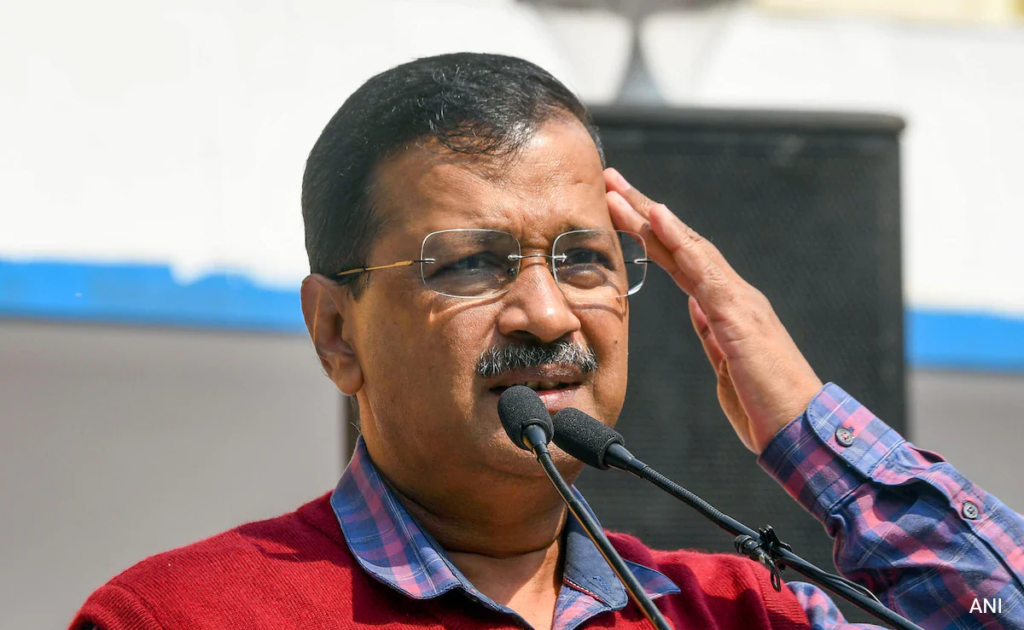Supreme Court Bail Great Hearing
Supreme Court-In the corridors of legal discourse, the case of Delhi Chief Minister Arvind Kejriwal has garnered considerable attention. Arrested on March 21 in connection with the purported liquor policy scam, Kejriwal found himself entangled in a legal web, with the apex court of India now deliberating on his bail plea. As the Supreme Court navigates through the nuances of this case, it’s imperative to dissect the highlights of the proceedings and the implications they carry.
Supreme Court-The genesis of this legal saga lies in the alleged irregularities surrounding the liquor policy, a matter that struck at the core of governance and ethics. For a figure as prominent as Kejriwal, the accusations levied against him reverberated across political echelons, raising pertinent questions about accountability and integrity in public office.

Supreme Court-March 21, a day etched in the annals of Kejriwal’s political career, marked his arrest, catapulting the case into the spotlight. Amidst the clamor of media scrutiny and public speculation, the judicial machinery embarked on its journey to discern truth from conjecture, legality from ambiguity. It was against this backdrop that Kejriwal, a formidable force in Indian politics, sought recourse through the corridors of justice, pinning his hopes on the impartiality of the judiciary.
Supreme Court-Fast forward to the present, and the Supreme Court finds itself at the epicenter of this legal maelstrom, tasked with adjudicating on Kejriwal’s bail petition. The stakes are high, with the impending Lok Sabha elections casting a shadow over the proceedings. In its wisdom, the court had signaled its willingness to entertain the bail plea, cognizant of the electoral ramifications and the imperative for political participation.
Supreme Court-As the courtroom drama unfolds, the crux of the matter lies in determining Kejriwal’s culpability and assessing the grounds for his release on bail. The prosecution presents its case, weaving a narrative of malfeasance and misappropriation, seeking to paint Kejriwal as a protagonist in a sordid tale of corruption. On the other hand, Kejriwal’s defense team mounts a spirited rebuttal, invoking principles of fairness and due process in their bid to secure his freedom.
Amidst the legal jousting and rhetorical volleys, the Supreme Court emerges as the arbiter of justice, tasked with balancing the scales of law and equity. In a notable pronouncement, the court opines that Kejriwal does not fit the archetype of a habitual offender, a remark that resonates across the legal fraternity and political spectrum alike. It’s a subtle yet significant endorsement of Kejriwal’s character, undercutting the narrative of habitual wrongdoing propagated by his detractors.
The court’s observation carries profound implications, transcending the confines of this case to underscore broader principles of jurisprudence and governance. By exonerating Kejriwal from the stigma of habitual offending, the court reaffirms the presumption of innocence, a cornerstone of the legal edifice. In doing so, it upholds the sanctity of individual reputation and dignity, insulating public figures from the perils of character assassination and trial by media.
Furthermore, the court’s stance assumes added significance against the backdrop of electoral politics, where perceptions often eclipse realities. With the Lok Sabha elections looming large, Kejriwal’s bail plea assumes heightened significance, not merely as a legal remedy but as a political imperative. The court’s nod towards granting bail acknowledges the exigencies of the electoral process, affirming the right of political leaders to engage with their constituents and propagate their vision for governance.
However, amidst the legal reprieve and political ramifications, it’s imperative to not lose sight of the underlying allegations and their implications for governance. The purported liquor policy scam strikes at the heart of democratic principles, casting a shadow over the integrity of public institutions and the trust reposed in elected representatives. Irrespective of the legal outcome, the case serves as a sobering reminder of the perennial battle against corruption and malfeasance in public life.
As the bail hearing reaches its denouement, the spotlight shifts from the courtroom to the court of public opinion, where narratives are shaped and destinies decided. For Kejriwal, a maverick in Indian politics, the verdict holds profound ramifications, shaping not only his immediate future but also his political legacy. Whether vindicated or vilified, Kejriwal’s tryst with justice epitomizes the complex interplay between law, politics, and public perception in a vibrant democracy.
In conclusion, the Supreme Court’s bail hearing in Arvind Kejriwal’s case transcends the confines of legal procedure to embody larger principles of justice, governance, and democratic accountability. As the legal saga unfolds, it’s imperative for stakeholders to reflect on the underlying issues at stake and the imperative for upholding the sanctity of public office. In navigating the tumultuous waters of Indian politics, Kejriwal’s case serves as a poignant reminder of the perennial quest for integrity and probity in public life, a quest that transcends individual ambitions and partisan affiliations.
